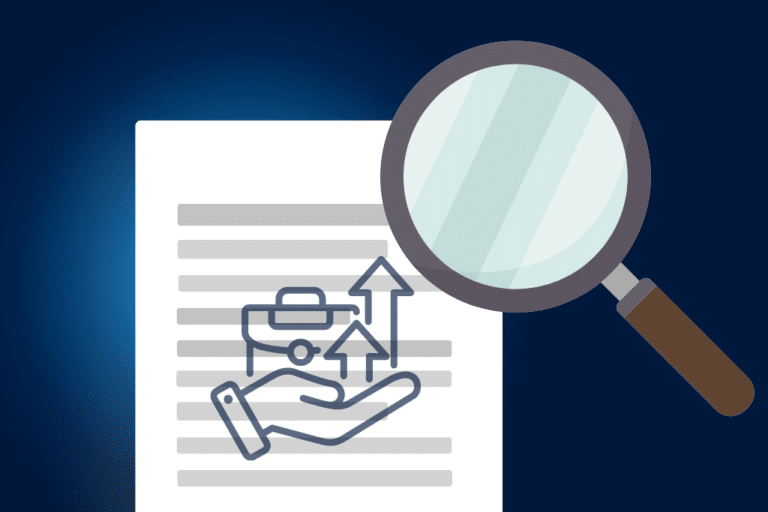What is an NDA?
The Non-Disclosure Agreement is a contract that many companies regularly use. It permits businesses to safeguard their confidential information during pre-contract negotiations or business partnerships, offering a cost-effective way to ensure confidentiality.
To streamline and accelerate the contractual process, a company can now leverage the artificial intelligence capabilities of a CLM when setting up an NDA.
The History of the NDA
The concept of an NDA dates back to the early 20th century when major industrial companies began implementing agreements to protect their trade secrets. One of the most well-known examples involves IBM and Gary Kildall. Allegedly, Kildall refused to sign an NDA when approached by IBM to develop an internal operating system. As a result, IBM turned to Bill Gates, leading to the creation of Microsoft’s MS-DOS. While many theories circulate, this story underscores the pivotal role NDAs play in protecting intellectual property.
Today, these agreements are widely used across various industries, particularly in technology, entertainment, and healthcare. For instance, major film production studios require screenwriters and actors to sign NDAs to prevent plot leaks before a movie’s release. Likewise, pharmaceutical companies use NDAs to secure proprietary research findings on breakthrough medications.
Defining a Non-Disclosure Agreement
An NDA (Non-Disclosure Agreement) is a contract that imposes two fundamental obligations:
- Do not use confidential information for competitive advantage.
- Do not disclose confidential information to unauthorized parties.
The NDA establishes clear conditions for confidentiality and specifies how the parties involved must handle the protected information.
Why is an NDA Essential in Business?
They are crucial as they prevent sensitive business information from being misused. Without this contract, a business partner or employee could exploit privileged data for unfair competition.
Furthermore, in a world where leaked information can cause severe financial losses and tarnish reputations, an NDA is a vital safeguard. Consider mergers and acquisitions: companies exchange critical financial data and strategic insights. If these details fall into the wrong hands, the entire deal could collapse, damaging stakeholders and market trust.
NDA Use Cases Across Industries
Other Use Cases
What Should an NDA Not Contain?
An NDA must be legally sound, precise, and enforceable. Certain elements should be avoided:
- Vague Language – If an NDA does not explicitly define confidential information, it may be difficult to enforce.
- Excessive Duration – While some last indefinitely, most should have a reasonable duration (e.g., 2–10 years).
- One-Sided Terms – A fair NDA outlines obligations for all parties, not just one.
- Non-Compliance with Legal Standards – If the agreement does not adhere to jurisdictional laws, it may be deemed void.
What is Considered Confidential in an NDA?
A company may require an NDA at two critical moments: during initial negotiations and after finalizing a business deal.
Common types of confidential information protected under this agreement include:
Protecting Innovations with NDAs
Among the most critical applications of an NDA is protecting intellectual property. When a company develops a new product or process, an NDA proves beneficial in two phases:
- During Development – It ensures secrecy, allowing a patent to be filed once the research is complete.
- Post-Commercialization – Some firms deliberately avoid patents to keep their technology confidential. By using this type of agreement, they prevent competitors from replicating their innovations.
Did you know? Coca-Cola has never patented its formula. Instead, the company relies on NDAs to classify its recipe as a trade secret. This prevents both employees and manufacturers from disclosing the secret formula, allowing Coca-Cola to maintain its market dominance.
What Happens When in Case of Non Respect?
When one party violates a non disclosure agreement, there are multiple legal actions that can be taken:
Possible Legal Remedies
Formal Notice – The company sends an official legal warning to the violating party, demanding immediate compliance with the NDA. This step is often the first course of action, giving the violator an opportunity to rectify the situation before escalating to legal proceedings.
Court Proceedings – If the violating party fails to comply with the formal notice, the affected company can file a lawsuit seeking damages. Depending on the severity of the breach, courts may award monetary compensation or issue an injunction preventing further disclosure of confidential information.
Contractual Penalties – Some of the clauses include pre-agreed financial sanctions to deter breaches. These penalties can range from fixed sums to damages calculated based on the financial harm caused by the disclosure. The inclusion of such clauses ensures that all parties recognize the seriousness of non-compliance.
Industry Bans – In severe cases, professionals or businesses that breach an agreement may face long-term repercussions. They can be blacklisted from industry associations, lose credibility within their market, or be excluded from future collaborations. In highly regulated fields, such as finance or healthcare, violations can even lead to license revocations or government-imposed restrictions.
Consequences of Breaching an NDA
- Reputation Damage – Leaking confidential information can ruin corporate credibility.
- Financial Penalties – Courts can order the offender to compensate for damages.
- Criminal Charges – In extreme cases, sharing trade secrets may lead to criminal prosecution.
Tools That Simplify NDA Management
Modern contract lifecycle management (CLM) tools significantly improve NDA oversight. Solutions like those of the DiliTrust Governance Suite provide automated features that:
- Streamline Collaboration – The sales and legal departments can work together on a unified platform.
- Track Deadlines – Alerts notify teams before an NDA expires, ensuring timely renewal.
- Enhance Security – Digital signatures and encryption keep NDAs safe from unauthorized access.
Automated deadline tracking alerts you before the NDA expires, so you can renew it if necessary.


